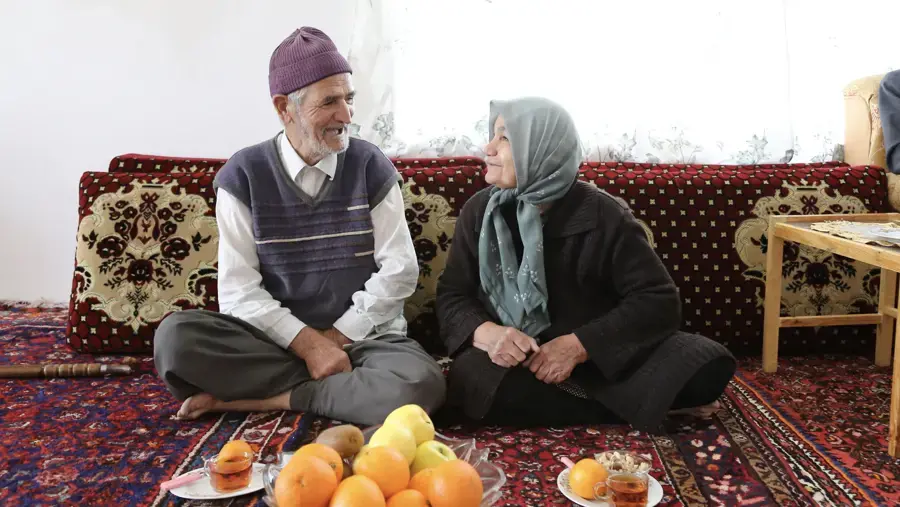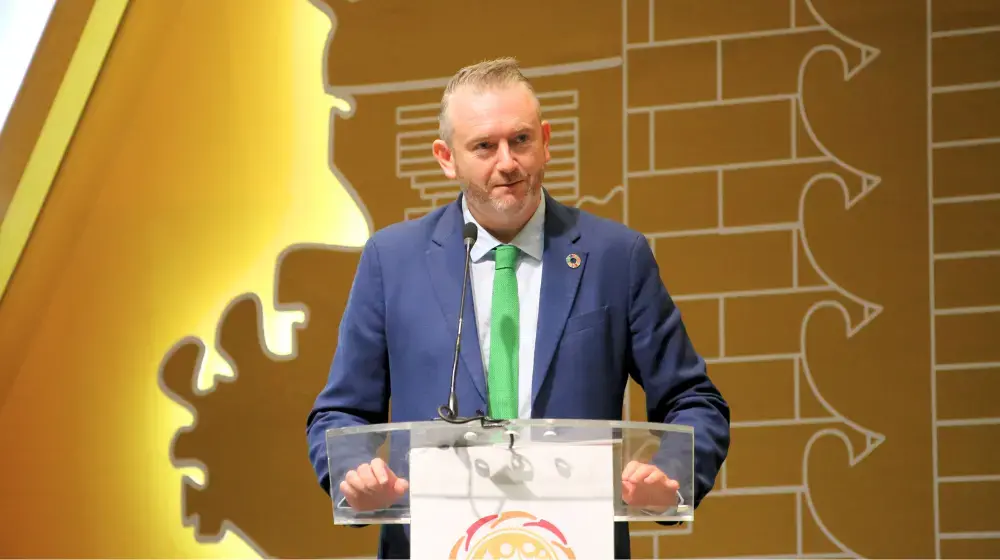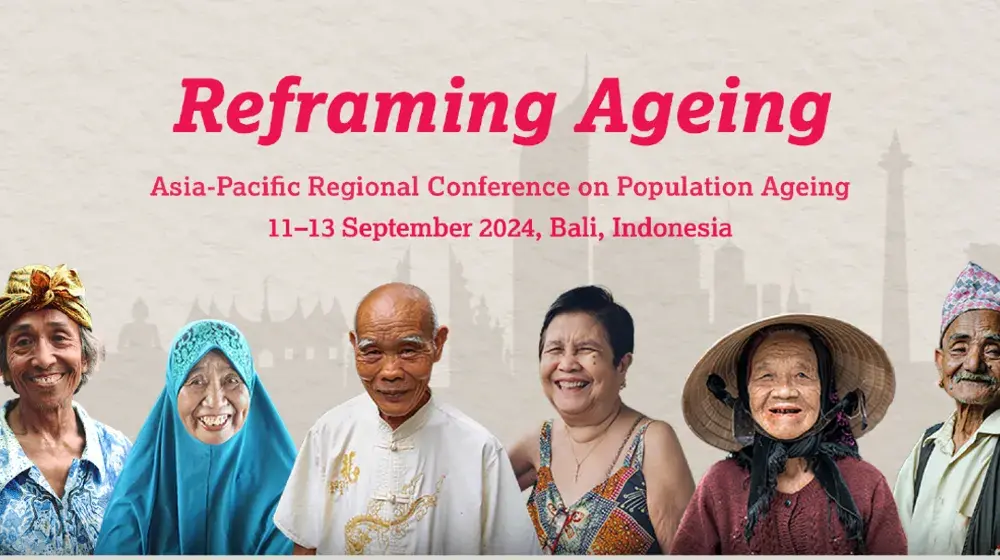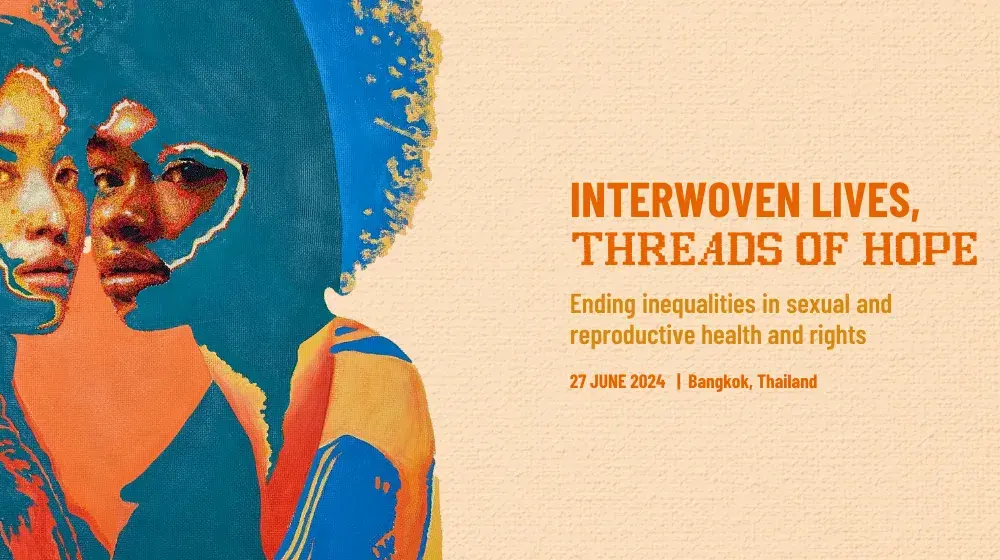For Every Age: a photo story
For every age
Older people are extraordinary.
But despite strong cultural norms of profound respect for elders, many countries in the Asia-Pacific region lack the policies and public systems necessary to help older people access services and thrive.
Our collection of stories looks at the challenges older people face across this diverse region, and a range of solutions that UNFPA supports across the life-cycle.
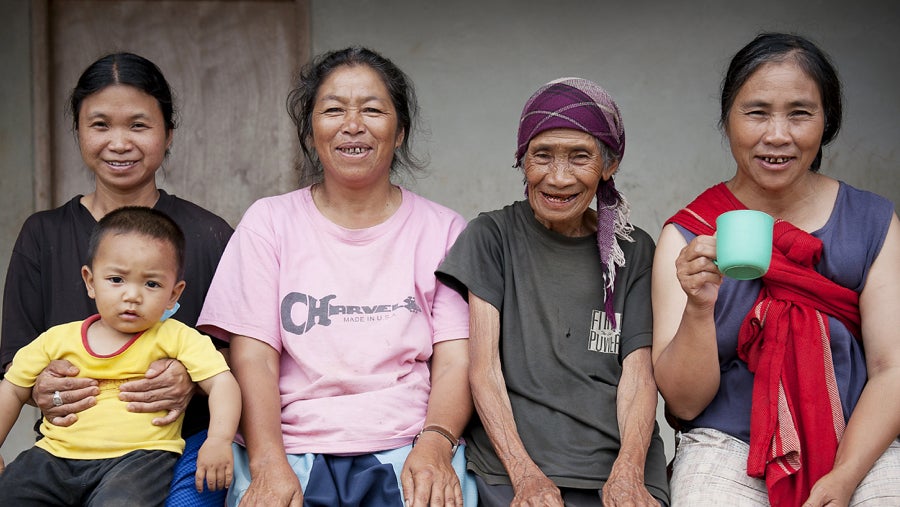
Thailand: A portrait of five generations of a Hmong family in Mae Salong. ©UN Photo/Kibae
Asia-Pacific is the most rapidly ageing region in the world. By 2050, one in four people will be above the age of 60, most of whom will be women.
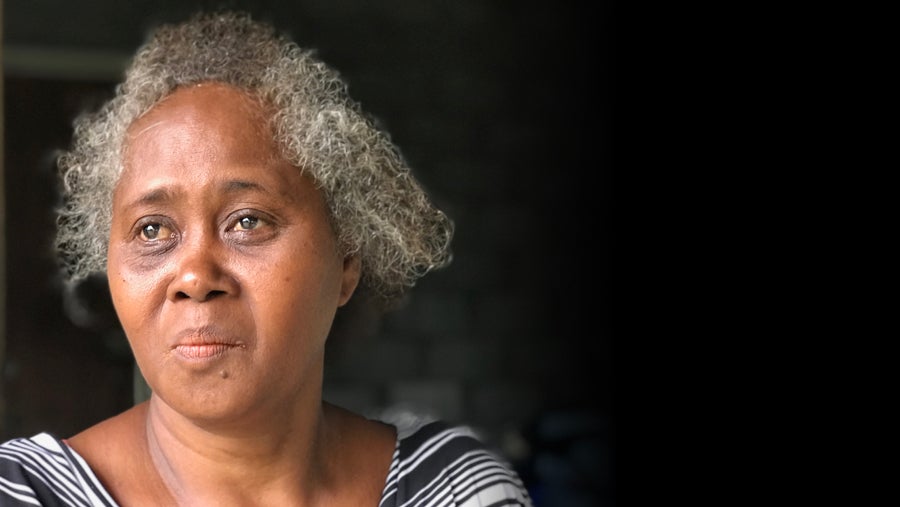
Solomon Islands: With healthcare systems under-funded and over-stretched, the needs of older people can be overlooked in Pacific countries like the Solomon Islands. Without reliable or accessible public transport, mobility is a challenge and even the health services at the national hospital sometimes do not have the equipment or training to meet the needs of their ageing populations. With no safety nets or savings, older people continue working on the land with shared family income from local crops that are increasingly vulnerable to droughts and climate disasters. ©UNFPA/Rose
Learn more about the Life-Cycle Approach to Population Ageing
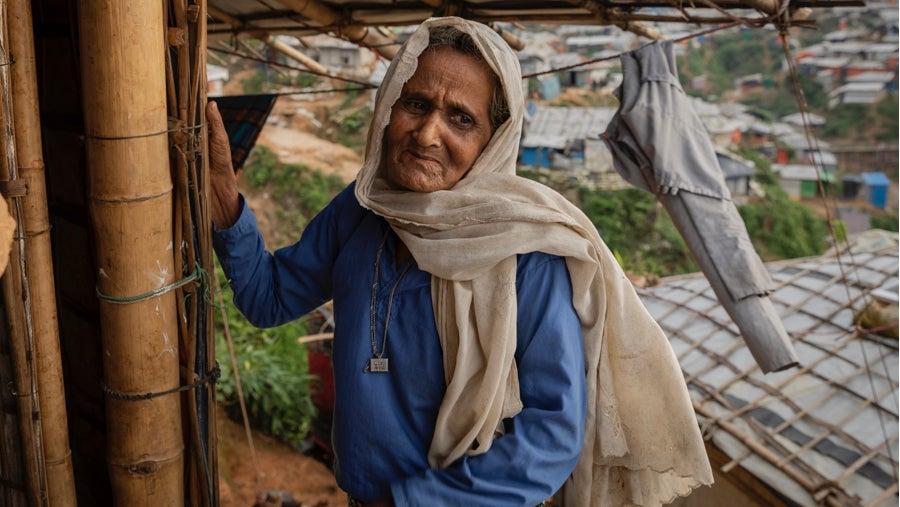
Bangladesh: Outside the bamboo-and-plastic shelter that 60-year-old Dulu and her husband, Salamat, call home there is nothing more than a narrow ledge a metre wide. Just past that. the ground drops away precipitously into a gully some 50 metres below where other shelters have been erected. Like many of the camps accommodating Rohingya refugees, Hakimpara camp sprawls across a series of sandy ridges from which most of the vegetation has been stripped. In the monsoon season, shelters like Dulu's - perched on crumbling sandy soil - are vulnerable to landslide.
Dulu seems unconcerned, despite the thin crack which opened in the shelter's cement-covered floor during the heavy rains that fell in June. While thousands of refugees living in locations deemed to be vulnerable to flood and landslide have been relocated to safer ground, Dulu says that she and her family are staying put. "We won't go, we will stay here," says Dulu firmly. "If we are going to die here in Bangladesh, we will die in this place.” ©UN0231419/Patrick Brown
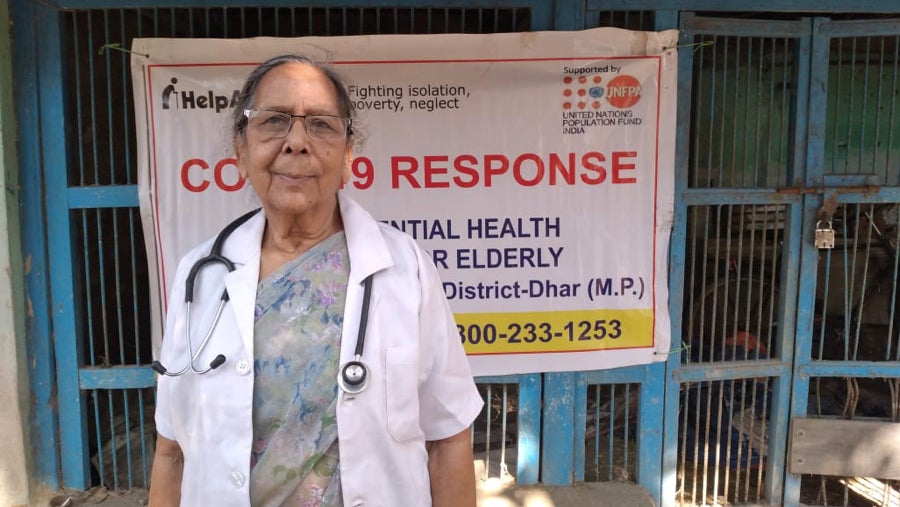
India: Dr Usha Vaidya, 84, started her medical career in 1963. Today, she leads rural outreach teams to deliver lifesaving services to older people through a Mobile Health Unit in the state of Madhya Pradesh. Usha says that the pandemic has been a stressful time for older people in the villages. She believes that listening is the most important part of her job. “We have to be very patient with older people. We have to know what we are going to do medically, but psychologically we have to be one with them”, she says. READ MORE
"So many times there is no medical help available. Whatever we can give, older people are really appreciative."
“So many times there is no medical help available. Whatever we can give, older people are really appreciative.”
-Dr Usha Vaidya, India
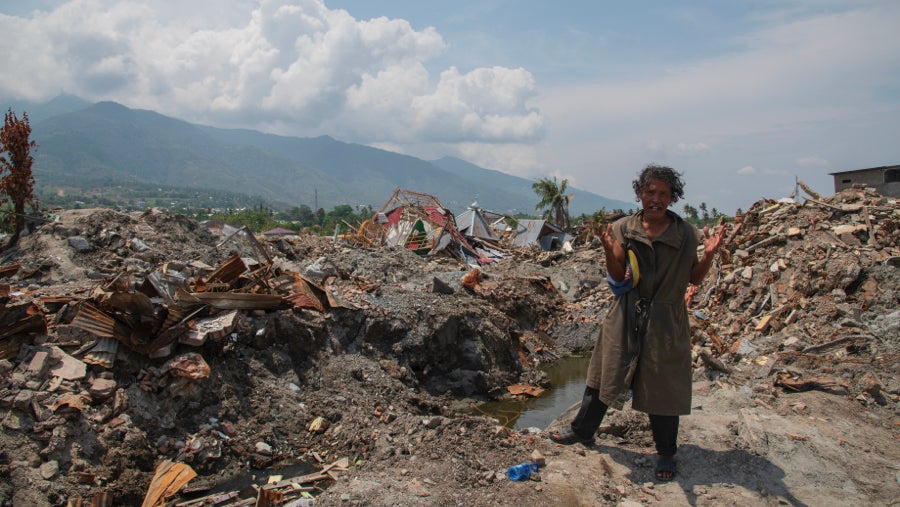
Indonesia: Pak Pur stands amid the rubble and remains of her village of Belaroa, which was completely destroyed by the 7.8 magiftude earthquake that hit on 28 September 2018. In the aftermath of the disaster, UNFPA supported a network of volunteers and health professionals to help women and girls acccess essential services. Through community mapping in the recovery, the team noticed that older people were not getting the support they needed. UNFPA supported a process of consultations that led to specially adapted dignity kits to meet the unqiue needs of older people. Dewi Rana is one of the community voluntreers who experienced the disaster and wanted to play a positive role helping rebuild. ©UN0250964/Kate Watson READ MORE
“We found out from our mapping and data collection that some elderly people had been left behind by their families. These older people weren’t living in the temporary shelters. Their children might have gone to live with other relatives and left them behind.”
-Dewi Rana, Indonesia
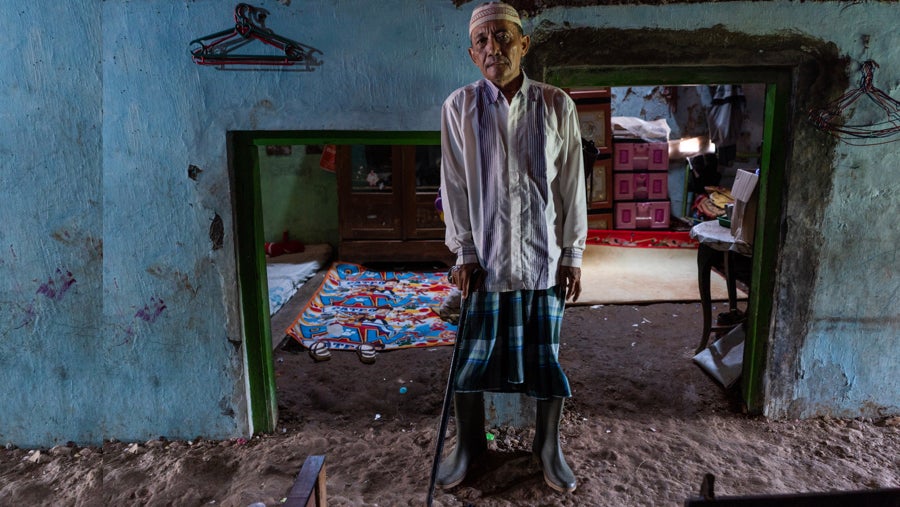
Indonesia: Maksum stands in his home in Tegaldowo village, Central Java province. Over the past 20 years his home has been inundated by tidal floods several times, forcing him to raise the floor to prevent water from coming in. ©UN0353513/Fauzan Ijazah
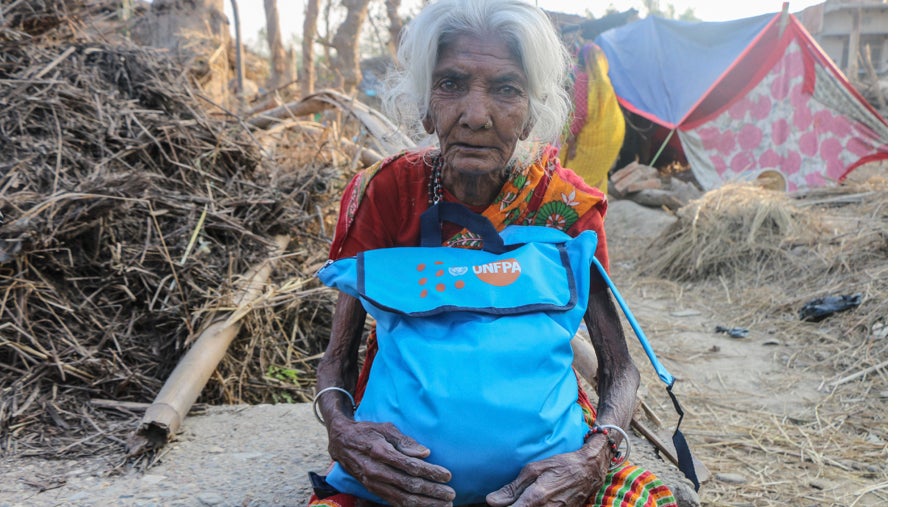
Nepal: 95-year-old Bachaki Devi Thakur got a dignity kit after Tropical Cyclone Fani caused flooding and displacement in 2019. UNFPA works with partners to ensure the kits are adapted to inlcude hygiene items and supplies like walking sticks and glasses to meet the needs of older people like Bachaki Devi. ©UNFPA Nepal/Santosh Chhetri
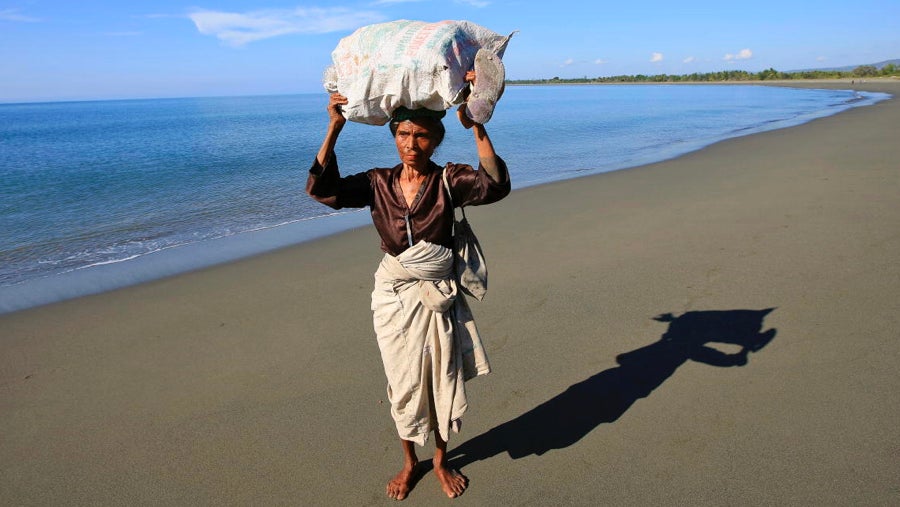
Timor-Leste: A woman carries a bag of bananas near Suai Loro near the capital of Dili. Across the region, older people play an important econmic role on farms, in markets and in family-run shops. Policies need to support older people with protection and assistance so they are able to thrive in their later years. ©UN Photo/Martine Perret
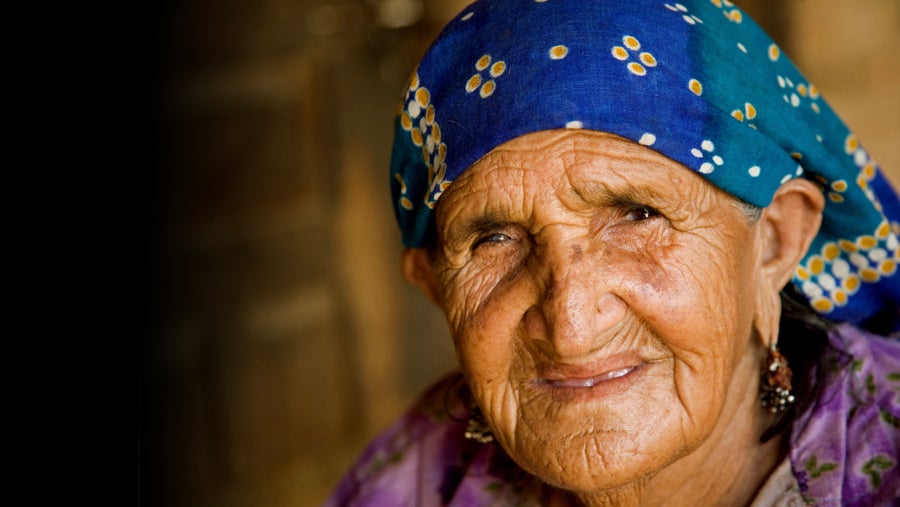
Pakistan: Portrait of an older woman in Rahim Yar Khan in Punjab Province. ©UNFPA/Asad Zaidai
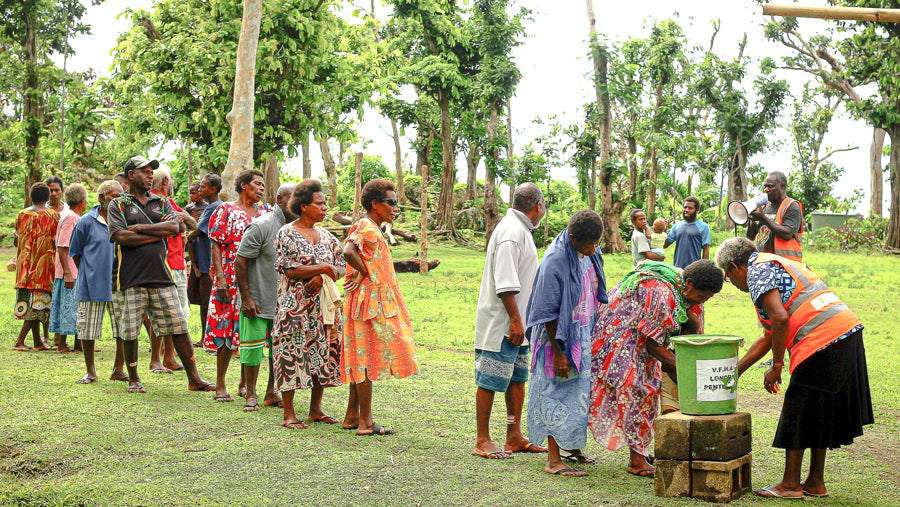
Vanuatu: When Tropical Cyclone Harold hit Pentecost island in 2020, the trees were stripped of leaves and communities were left without food and some of their clinics in ruins. UNFPA was part of the response that supported the government's effort to reach the most vulnerable. Remote island communities often have older populations so- the response needed to be designed to include additional services for older people and people with disabilites. ©UNFPA/Scarlett Hawkins
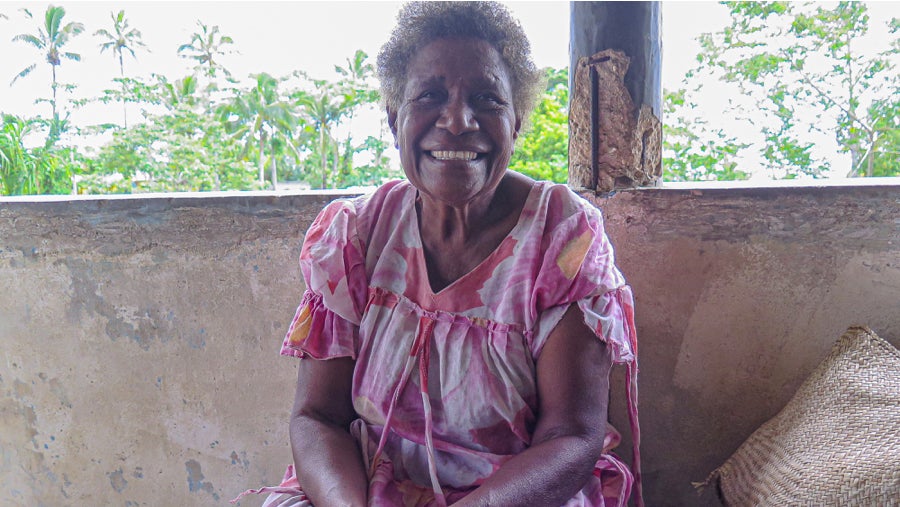
Vanuatu: Followng Tropical Cyclone Harold, UNFPA supported emergency health clinics on Pentecost island that offered services and supplies for older people. The collective effort also worked with churches and local leaders to make sure everyone can access the services. After disasters, humniantrain teams make an extra effort to reach older populations with grassroots community engagement. ©UNFPA/Scarlett Hawkins
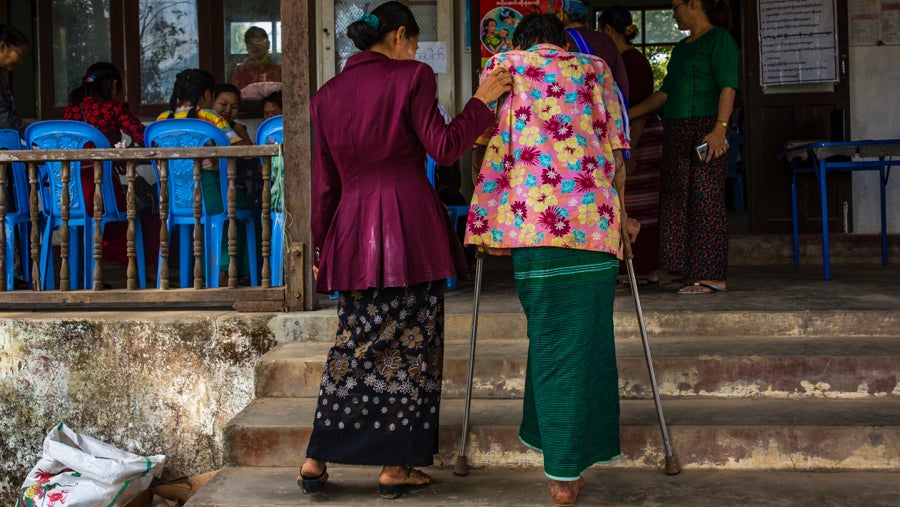
Myanmar: An older person gets a helping hand in Hpa Ann township in Kayin state. Prioritizing funding for accesible service centers means installing ramps and railings but these are not always a priority with decison-makers. UNFPA supports advocates across the region who are calling for infrastructure and environments that are designed with older people's needs in mind. ©UN0430561/Nyan Zay Htet
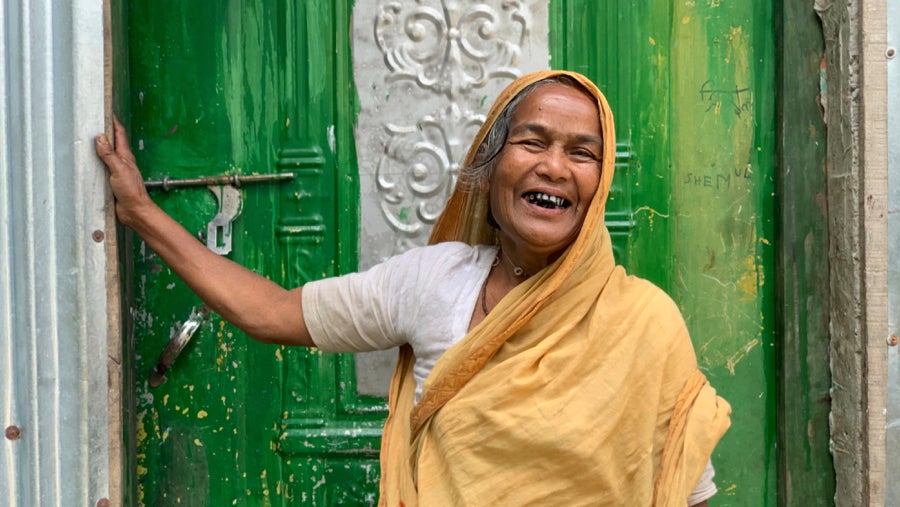
©UNFPA Bangladesh/Ferdous Alka
Learn more about the Life-Cycle Approach to Population Ageing

